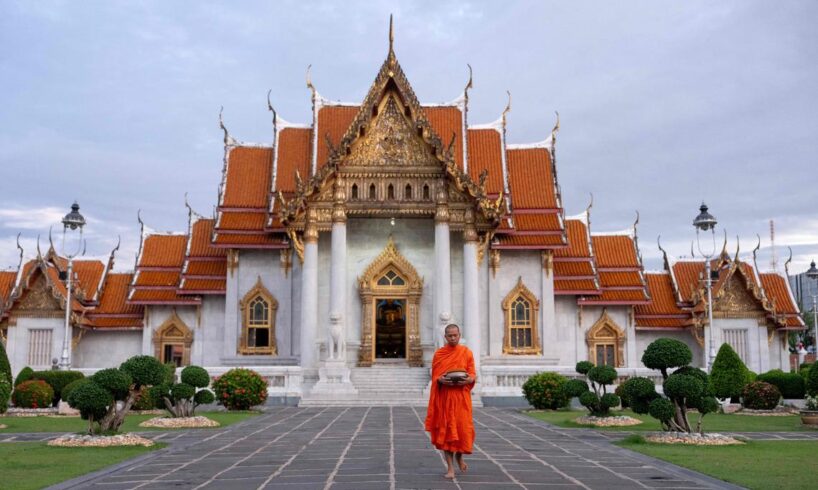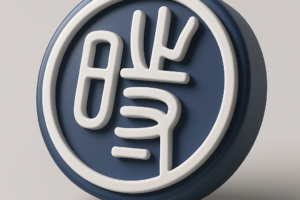
BANGKOK – Reverence for the saffron-robed Buddhist monkhood is deeply woven into Thai society, but a sex extortion scandal has besmirched the clergy and left the devout questioning their faith.
The police this week arrested a woman accused of bedding at least 11 monks in violation of their vows of celibacy, before blackmailing them with thousands of secretly taken photos of their trysts.
The monks are said to have paid nearly US$12 million (S$15.4 million), funnelled out of their monasteries funded by donations from laypeople hoping to increase their merit and prospects for reincarnation.
The scandal provoked outrage over hypocrisy in the monkhood, concern that their status shields them from scrutiny, and soul-searching across society about the role of religion.
“I’m not involved in the religion like I used to be,” 33-year-old motorbike taxi driver Mongkol Sudathip told AFP. “I don’t have full respect for it anymore.”
King Maha Vajiralongkorn has cancelled invitations to more than 80 monks to attend his upcoming 73rd birthday celebrations, citing “inappropriate behaviour that caused mental distress among the Thai people”.
While the 11 monks have been stripped of their robes, the kingdom’s National Office of Buddhism has vowed to “restore public trust” with a sweeping police probe into the grubby affair.
Theravada Buddhism has been the spiritual backbone of Thai identity for more than two millennia, and still shapes national laws banning alcohol on religious holidays and protecting sacred objects.
Thai men are traditionally expected to ordain as monks at least once in their lives for a period lasting as short as a few weeks or as long as decades.
The clergy are bound by 227 strict rules, including a ban on masturbation, touching women and even handling objects directly from them.
Monks traditionally survive on alms, food offerings and a modest US$170 monthly stipend, but some pocket fees for lectures, blessings and ceremonies – blurring the line between faith and fortune.
In a TV interview, the woman at the heart of the scandal said she developed a “splurging attitude” as her monk lovers lavished her with shopping trips worth up to US$90,000 a day.
Mr Mongkol said he now prefers to donate to hospitals or schools for underprivileged children. “It feels more meaningful than giving money to temples,” he added.
July’s scandal is not the first to rock the monkhood.
In 2017, police raided Wat Dhammakaya north of Bangkok, arresting its former abbot over allegations of laundering US$33 million in public donations.
In May 2025, police held another monk in the capital over
allegations of embezzling
nearly US$10 million from a temple for an online gambling network.
Buddhism scholar Danai Preechapermprasit said repeated scandals – especially among senior monks – have “shaken people to the core”.
“People question whether donations are used for spiritual significance or personal desire,” he added.
“I think Thailand has reached a point where it’s difficult for monks to even walk down the street.”
A powerful lawmaker has pledged tighter regulations within three months – including mandatory donation disclosures and laws treating monk misconduct as a criminal offence.
“This case does not represent Buddhism as a whole,” said national police chief Kitrat Panphet on July 17, pledging a new task force to probe misbehaving monks.
“It’s about a few individuals doing wrong,” he added.
In Buddhist tradition, monks are viewed as the Buddha’s spiritual heirs, entrusted with preserving and passing on his teachings.
But at Wat Bowonniwet in Bangkok – one of Thailand’s most revered temples – only 26 monks were ordained in 2025, a steep drop from nearly 100 before the Covid-19 pandemic.
A monk there, speaking to AFP anonymously, blamed societal changes after the pandemic, which forced people into isolation – saying nowadays “people prefer to live outside the temple life”.
Independent Buddhism expert Jaturong Jongarsa said temples are increasingly being treated as “a garbage dump” – where families send drug addicts or LGBTQ youth to be “corrected”.
“Temples are no longer seen as the sacred spaces they once were,” he told AFP. “People send their problems to the temple and hope they’ll go away.”
Still, not all Thais have lost faith.
Mr Camphun Parimiphut, a 52-year-old security guard from Maha Sarakham in Thailand’s north-east, said: “Buddhism is about the teachings, not the individuals who fail it.”
Because of corruption scandals, he now avoids giving money to monks – preferring to donate only food. But his devotion remains steadfast.
“You can lose faith in monks,” he noted. “But never lose trust in Buddhist teachings. They still teach us how to live a good life.” AFP
ThailandBuddhismReligionExtortion/Blackmail





